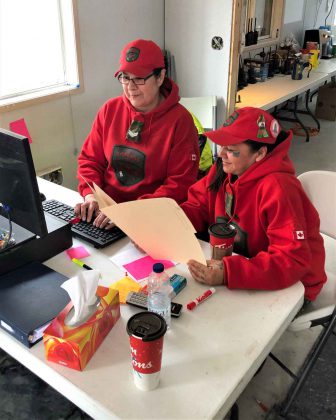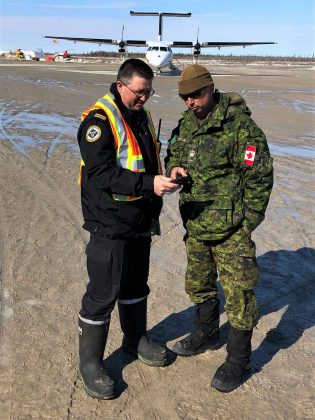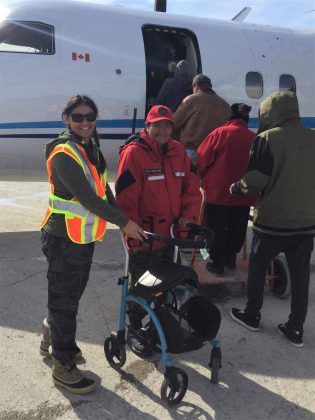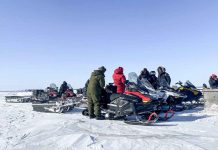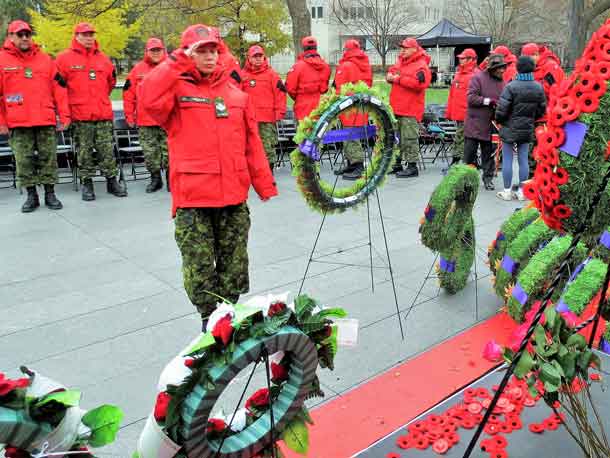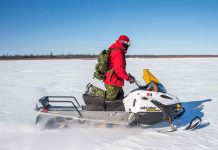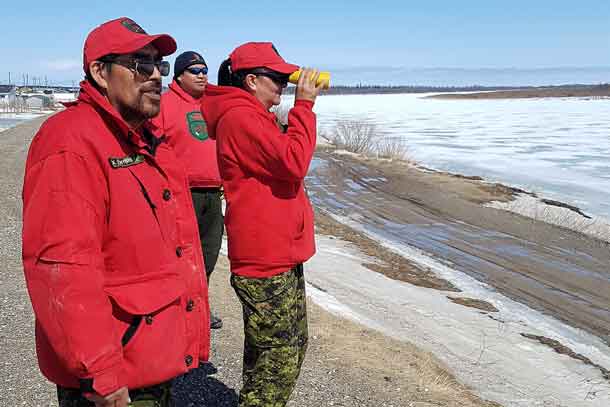
by Peter Moon
KASHECHEWAN – Canadian Rangers are playing key roles in the evacuation of Kashechewan First Nation as it prepares for possible serious flooding.
The Rangers, who are part-time army reservists, are members of the Kashechewan Ranger patrol. The remote Cree community on the James Bay coast began evacuating more than 2,500 residents by plane on April 1, with evacuees going to Timmins, Kapuskasing, and Thunder Bay.
Every spring the community faces possible flooding when the ice on the Albany River breaks up and meets heavy ice on James Bay, raising water levels on the river to dangerous levels. The community has had to be evacuated several times in recent years.
“The Rangers are working 16-hour, 18-hour days,“ said Warrant Officer Carl Wolfe, a Canadian Army instructor, who is in Kashechewan to assist in the evacuation. “They are helping with planning and compiling passenger manifests for the planes flying evacuees out of the community. At the airport, they are helping the elderly, the sick, children, and people with mobility issues. They help with their luggage and getting them onto the planes.
“Depending on the number of evacuation planes in a single day the Rangers may not leave the airport until 8 p.m. or 9 p.m. Then they attend a planning session in the emergency operations centre, which is in a trailer next to the band office, and work on passenger manifests for the next day’s flights.”
“They are long days working on behalf of their community. There are Rangers in other communities who are prepared to help if the situation gets worse.”
The Rangers are working with Emergency Management Ontario, the Canadian Red Cross, and a number of other assisting agencies.
Several Rangers have not been placed on active duty by the army because they are assisting in other roles. They Include Ranger Brendan Spence, Kashechewan’s emergency co-ordinator and fire chief, Ranger Josiah Martin who is the deputy fire chief, and Ranger Redfern Wesley, a band councillor.
The Rangers’ participation in the emergency “proves they are an indispensable community organization,” said Lieutenant-Colonel Matthew Richardson, who commands the 630 Rangers in 27 First Nations across the Far North of Ontario. “This situation shows the interplay and the interoperability between the Rangers and their community. It’s what allows the Rangers to be so successful.
“These are Rangers who live in Kashechewan. If things develop and the situation becomes more serious there are a lot of people and resources behind the Rangers. There are Rangers in other communities who can fly in to help and they can receive, if necessary, the full support of the Canadian Army and the Royal Canadian Air Force. The Rangers in Kash are doing a good job.”
(Sergeant Peter Moon is the public affairs ranger for the 3rdd Canadian Ranger Patrol Group at Canadian Forces Base Borden.)


